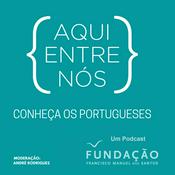49 episódios

INTERNATIONAL CORRUPTION, with Ricardo Soares de Oliveira
16/12/2025 | 34min
The received wisdom often views corruption as a domestic problem, internal within each country. However, Ricardo Soares de Oliveira, professor of Political Science at CERI–Sciences Po, challenges this view, arguing that «over the years, we have come to realise that corruption is more a matter of global governance and, in many ways, a feature of the global economy».In this episode of «It's not that simple», the political scientist demonstrates how the international financial system creates conditions for illegal practices to flourish through legal mechanisms. Essentially, the distinction between legal and illegal may be less clear-cut than it appears.In light of this, the Oxford researcher goes on to highlight one of contemporary academia’s primary concerns, namely, how some regions lead (or abandon) the anti-corruption agenda.While acknowledging the Western origins of the fight against corruption, the expert nevertheless criticises the disunity, inconsistency and hypocrisy of Western countries in this area. He contends that the UK and Switzerland, for example, «have sought to defend their financial sectors – particularly offshore ones – by refusing financial reform, especially in terms of transparency».Soares de Oliveira points out how, during the last five years, this hypocrisy has given way to a great deal of scepticism, not only regarding transparency laws but also the role of NGOs. «We are experiencing a decline in the ability to influence decision-makers to adopt reformist measures», he warns.The constantly shifting landscape is producing new challenges. One such challenge is cryptocurrencies, which add layers of risk and escape traditional control mechanisms – mechanisms that Soares de Oliveira claims were already ineffective in many cases.More on the topic:Profile of Ricardo Soares de Oliveira, University of Oxford«Corrupção», by Luis de Sousa (FFMS Bookstore)Ricardo Soares de Oliveira: «As elites angolanas não confiam no futuro do país» (Público)

GENETICS, with Alfonso Martínez Arias
25/11/2025 | 39min
For decades, we believed DNA held all the answers. But biologist Alfonso Martínez Arias offers a different view: «Genetics is simple, the problem is thinking it’s the answer to who we are».In this live episode of «It's not that simple», recorded at the Salão Nobre of the University of Lisbon, the researcher from Pompeu Fabra University explains why the 21st century will be the century of the cell. Cells communicate, cooperate, and organize to form complex organisms and it’s in this interaction that the secret of life may lie.Martínez Arias invites us to take a step back and look beyond the genome. The 20th century was the century of the gene: we discovered DNA and completed the human genome. But when the biologist observes the human body through the lens of its cells, he finds a different story.According to him, «genes are mechanisms that cells use», and he compares them to IKEA tools: a hammer and screws are not enough to build a piece of furniture; you also need the plan, and that plan only the cells know.From stem cell studies to organoids - small lab-grown replicas of human organs - Martínez Arias shows how biology is reshaping the way we understand development, disease, and even aging.He believes this shift in focus, from genes to cells, will transform medicine. But could these new discoveries transform us too?More on the topic«The Master Builder: How The New Science Of The Cell Is Rewriting The Story Of Life», Alfonso Martínez Arias (John Murray Press)«Elissa Epel: Genetics, chronic stress and ageing» (Science and Education Month, FFMS) «Svante Pääbo: How genetics tells our human story» (Science and Education Month, FFMS) «The Incompleteness of Evolution», with Alfonso Martínez Arias

INVESTIGATIVE JOURNALISM, with Mariana van Zeller
14/10/2025 | 34min
How far should a reporter go in search of the truth? Investigative journalism demands time, resources, and risk. In this episode of «It's not that simple», with journalist Mariana van Zeller, we discover that in her profession there are no shortcuts.A childhood curiosity took her to Columbia University in New York. From there, she set off on an adventure across more than 80 countries. But what drives someone to infiltrate clandestine networks, cross dangerous borders, and expose themselves to risk just to tell a story?The stories she uncovers are not easy, but they justify the Peabody, DuPont and Emmy awards she has received. From drug cartels to arms traffickers, from corruption to migration routes, each episode demands months of preparation, risky travel, and moments of real tension. «There is a line we should never cross, but we must always come back with chalk on our feet», says Mariana van Zeller, describing her balance between safety and risk.In an era dominated by the attention economy, and, as she says, also by the «economy of rage», where does truth stand? With information becoming disposable, shaped by social media and algorithms, her work gains new urgency: «Investigative journalism is the pursuit of truth, and truth is essential for a healthy democracy.»More on the topic«Trafficked», with Mariana van Zeller, National Geographic«Immigration Barometer: the view of the Portuguese», FFMS«Mariana van Zeller, the investigative journalist who goes deep into empathy», ECO Interview with Mariana van Zeller, RTP

GEOGRAPHY, with Tim Marshall
23/9/2025 | 31min
British journalist and bestselling author Tim Marshall, known for the book «Prisoners of Geography», takes us on a journey through the real world: the one shaped by mountains, rivers, seas and natural borders that define how nations behave.«Geography doesn’t explain everything, but it explains almost everything», he says, and he says it with the clarity of someone who’s reported from twelve war zones, been jailed in Damascus, shot in Cairo and bombed in Belgrade.For Marshall, geography isn’t a detail, it’s the invisible structure that defines who can thrive, who gets blocked, and who ends up in conflict. «If you’ve got wide navigable rivers, deep ports and sea access, you can build ships, trade goods and project power. If you’re surrounded by mountains, shallow coasts or deserts, you’re limited from the start».That structural inequality helps explain the success of the United States, «the most blessed country by geography», and Russia’s defensive mindset: «trapped on an exposed plain where the only defense is controlling buffer zones».Portugal also comes under the lens: «You don’t have direct access to the Mediterranean or the major rivers of Central Europe. You face the sea, and, for a long time, the sea was your power».Throughout the conversation, Marshall discusses climate, migration, populism and emerging tensions. And he’s blunt: climate change is already reshaping global politics. «When a Latin American farmer can no longer grow coffee, he moves north. That kind of mass migration helped elect Trump».The geopolitics of the future, he says, won’t just play out between states, but between zones of despair and zones of opportunity. That means we have to look at the planet as a whole.More on the topic:«The What & The Why», Tim Marshall's podcastIntelligence Squared: «How does geography explain the world?», with Tim MarshallTim Marshall's X account

PHYSICS, with Helen Czerski
26/8/2025 | 34min
In this interview, physicist and oceanographer Helen Czerski demonstrates that physical patterns are all around us and explains how they shape our daily lives, connecting human life with the planet’s life.For the researcher at University College London, understanding the world means investigating these invisible patterns, especially those affecting the ocean: how the wind transfers energy to the waves, how sound travels through water to reveal hidden objects and how gases circulate between the ocean and the atmosphere via gas bubbles at the surface of the ocean.In the North Atlantic, for example, the ocean is inhaling carbon dioxide, taking it out of the atmosphere, while in the tropics, it is exhaling it, releasing it back into the atmosphere. «There is a natural balance between the two», insists Helen. «And what is really useful about this is that we remove that gas from the atmosphere, where otherwise it would have contributed to global warming», she explains.«These tiny processes, breaking waves and bubbles at the surface of the ocean, may not seem particularly significant», she adds, «but if we measure all the respiration constantly taking place across the planet, we see that the ocean is actually doing us a huge favour».Those very same gas bubbles revolutionised fishing. Sonar systems, which send sound into the ocean, use them to locate fish. If a fish has a gas bubble in its swim bladder – as most fish do –the sound travels differently through the animal. However, the specialist warns, «this has contributed to overfishing and impacted biodiversity in the oceans».«The key takeaway from all my work is how incredibly interconnected systems are. In the natural world, what happens in one place has impacts in other places», affirms Helen Czerski, citing how even a whale’s urine influences the balance of ecosystems.«Whales feed in the Arctic and migrate to the tropics to mate. While mating, they don’t eat, but still produce urine, which deposits nitrogen on tropical islands», explains the BBC presenter. In places like Hawaii, meanwhile, they take shelter on reefs to rear their calves and end up fertilising these environments, which are not naturally nutrient-rich.But this movement of nutrients has been under threat since industrial whaling began. «We removed one of the mechanisms that made the rest of the system work», and if humanity continues to remove other parts, through overfishing and introducing pollutants to the ocean, «it’s not just a chain that we’ll be breaking, but a whole web of interactions», she maintains.For the time being, Helen Czerski assures that the planet still has the capacity to resist, but recognises that the balance between human life and that of the planet is changing. «I think we have an enormous problem, but also that we have the means to solve it». What we cannot do, however, is carry on dragging our feet –we must act.More on the topic:Helen Czerski's website Helen Czerski's publications (University College of London)«The fascinating physics of everyday life», (TED Talk)«Climate change: A possible future» (Documentary, FFMS) «On the trail of whales, orcas and dolphins in Portuguese waters» (Latest, FFMS)
Mais podcasts de Negócios
Podcasts em tendência em Negócios
Sobre It’s not that simple
Ouve It’s not that simple, Boa moeda, má moeda e muitos outros podcasts de todo o mundo com a aplicação radio.pt
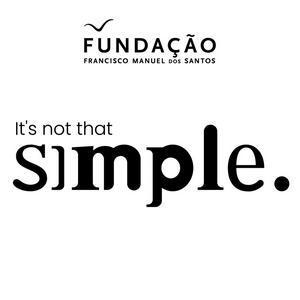
Obtenha a aplicação gratuita radio.pt
- Guardar rádios e podcasts favoritos
- Transmissão via Wi-Fi ou Bluetooth
- Carplay & Android Audo compatìvel
- E ainda mais funções
Obtenha a aplicação gratuita radio.pt
- Guardar rádios e podcasts favoritos
- Transmissão via Wi-Fi ou Bluetooth
- Carplay & Android Audo compatìvel
- E ainda mais funções


It’s not that simple
descarregue a aplicação,
ouça.
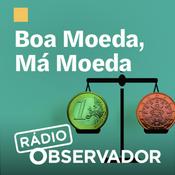

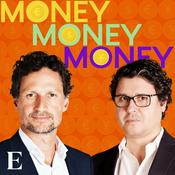
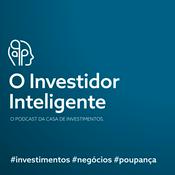
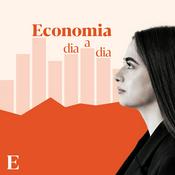

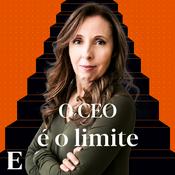


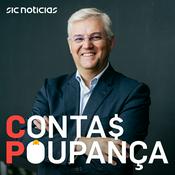


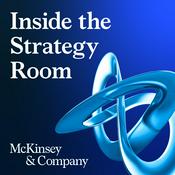
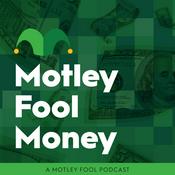


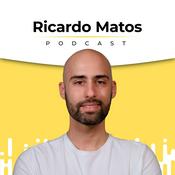










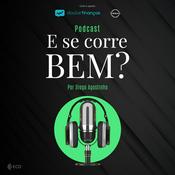
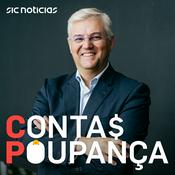
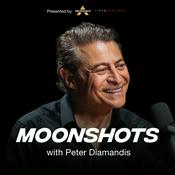




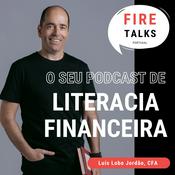
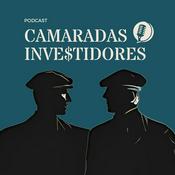

![Podcast Fundação (FFMS) - [IN] Pertinente](https://www.radio.pt/podcast-images/175/fundacao-ffms-in-pertinente3.jpeg?version=ae765604f36201f521dcd273ab986eedc0443c5a)
